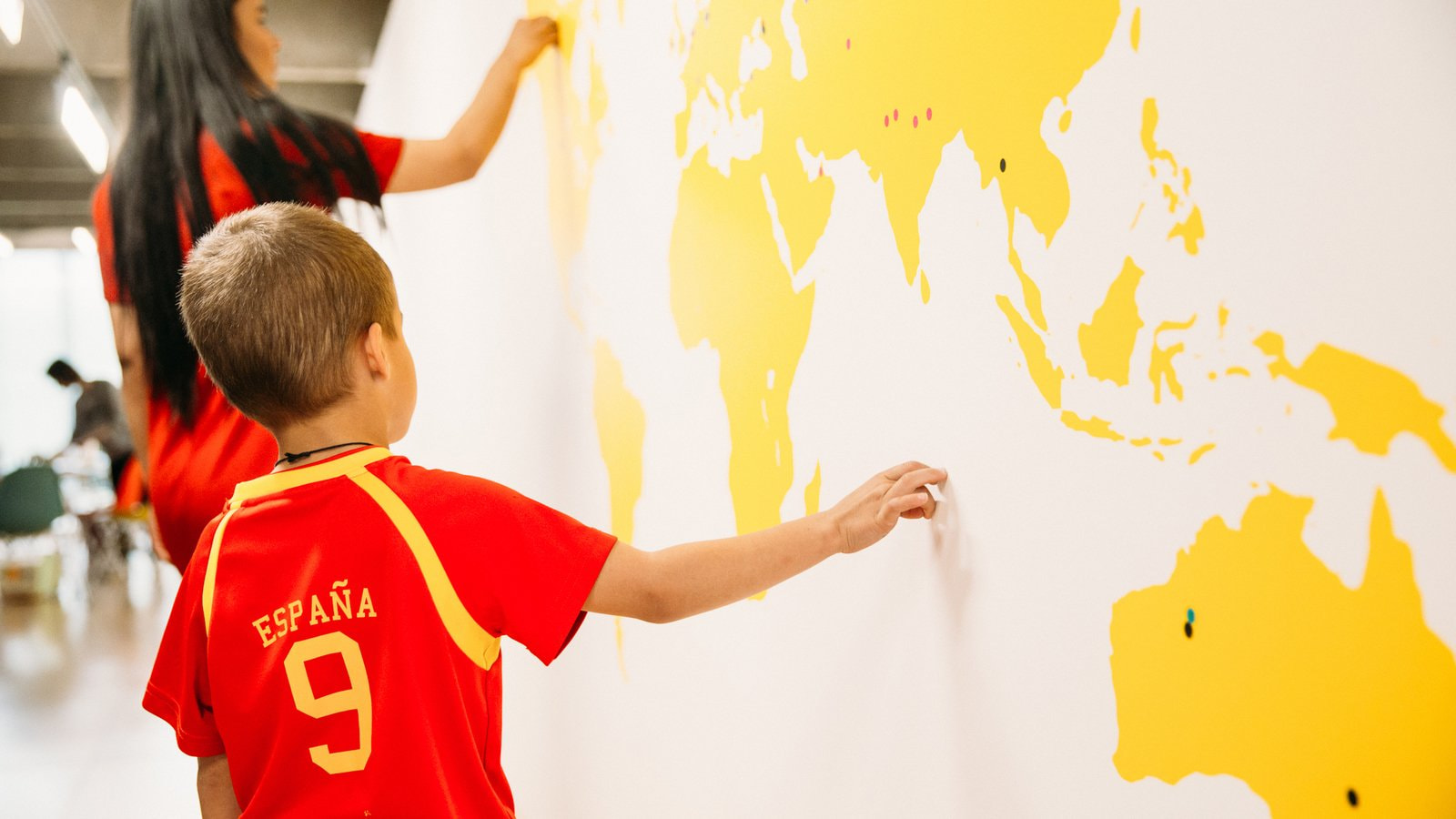Working with visitors with migrant backgrounds and experience of forced migration at Garage
Garage's Inclusive Programs department is actively expanding the concept of inclusion, which is usually understood in Russia as a politically correct synonym for the term "disability." In fact, inclusion means developing comfortable conditions for all people, regardless of their age, religious beliefs, gender, ethnic and cultural affiliations, and whether they have a disability or not.
In 2019, the Inclusive Programs department launched a new direction focusing on working with people with migrant backgrounds and the experience of forced migration. The establishment of the new direction was preceded by the Museum's efforts to work with children and teenagers with experience of forced migration. In 2017, the Museum also launched courses in Russian as a foreign language for the Museum staff who have migrant backgrounds. These courses became an important step for our personal understanding of inclusion and diversity.
The department's current performance in this direction can be divided into internal and external directions. Our work is aimed at people with and without migrant experience. Internal work means that we continue to conduct language courses for employees, although in a broader format than just studying the Russian language; it also implies acquaintance with Russian culture and history, visits to Moscow cultural institutions, and discussions on the issues of contemporary migration. The external direction means working with Garage audiences using various formats, including lectures, discussions, workshops, conferences, training, podcasts, festivals, and games.
In the first two years since the launch of the new direction, Garage devoted a lot of time to covering various aspects of migration and forced migration. At this stage of the program's development, the majority of our target audience were people without experience of external migration. It was important for us to create a space for dialogue—in order to destigmatize people with migrant backgrounds and promote awareness about ethnocultural diversity. One of the seminal projects of the first stage—the destigmatization stage—became the annual cross-museum festival Point of Displacement, timed to coincide with World Refugee Day.
In 2021–2022, we plan to launch guided tours delivered in the Uzbek, Kyrgyz and Tajik languages, design a program of internships for teenagers with the experience of forced migration, and develop a professional training program for guides whose native languages are Central Asian. It is important for us that visitors to the Museum can receive information in the language of their preference.
We continue to develop programs for children and teenagers addressed to all visitors, regardless of whether or not they have migrant experience. Any kid or teen, as well as their parents, can find events on offer at Garage for themselves that are designed, taking into account different interests and audience requests.
Along with the Museum's public programs, our activity evolves within the framework of its professional direction. One of Garage's annual conferences, Experiencing the Museum, for instance, was dedicated to the issues of cultural institutions' interaction with people with migrant backgrounds and the experience of forced migration. In 2020, we assumed responsibility and, as part of our course on the basics of working with people with migrant backgrounds and the experience of forced migration, trained fifteen specialists in the field of education project development with consideration of ethnocultural diversity.
Various tools for addressing the subject of migration and working with people with relevant experiences help our aim to achieve our main goal, which is ensuring comfortable conditions for an individual's visit to the Museum.
